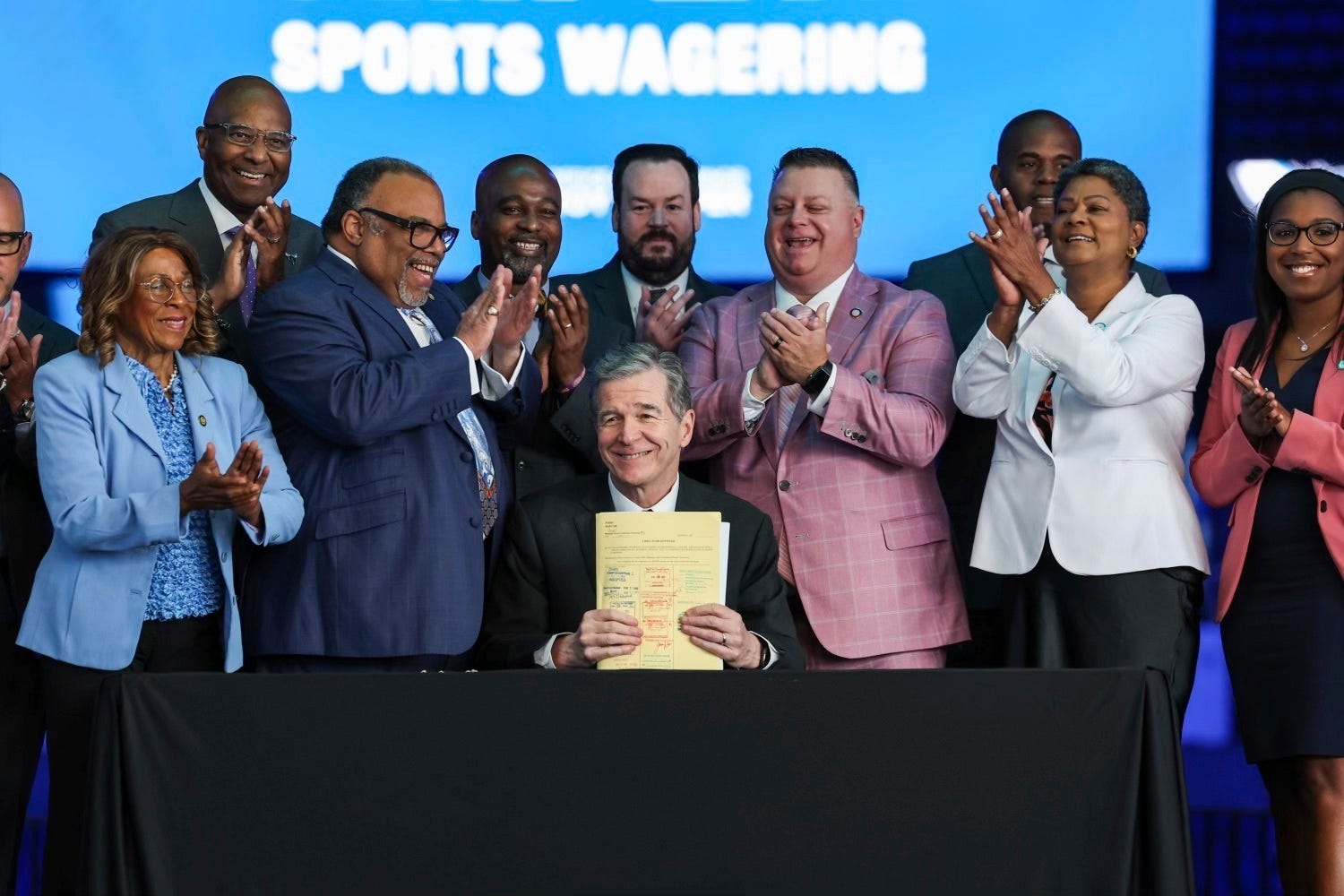
Gambling on sports and horse racing is newly legal in North Carolina, but medical marijuana isn’t — yet — as North Carolina’s lawmakers go into their final weeks of passing laws before they shut down the legislature in July.
Some of the other issues the General Assembly looked at this year: Easier access to guns, reduced access to abortion, toughened penalties for damaging electric utility stations, and more government healthcare.
Here is where these issues stand:
Medical marijuana — will it be legalized?
Republican state Sen. Bill Rabon’s medical marijuana law, The North Carolina Compassionate Care Act, passed the state Senate in March. But it has stalled in the state House.
Most recently, the House Health Committee gave the legislation a hearing. Rabon described how he used marijuana illegally — and on the advice of his doctor — to ease the symptoms of his intense chemotherapy when he had colon cancer more than 20 years ago.
“That’s the only reason I’m alive today,” Rabon said.
The 120-member House has 72 Republicans and 48 Democrats. Those numbers pose a question: If a bipartisan majority supports medical marijuana, but at least 36 of the 72 Republicans oppose it, will the Republicans who control the House allow it to get a vote? Or will the leaders let those 36 lawmakers block the legislation?
New law: The sheriff can’t stop you from buying a gun
The legislature’s Republicans on March 29 overrode the veto of Democratic Gov. Roy Cooper and canceled a law that required people seeking to buy a handgun to get permission from their local sheriffs. The old permit law did not apply to long guns.
Fayetteville-area gun dealers said handgun sales rose after the permit law was repealed.
Power station protection
In December, someone shot up two Duke Energy power stations in Moore County, causing so much damage that most of the residents were in the dark for days.
As a result, the legislature unanimously voted to increase the punishment for those who do this in the future. The bill is awaiting the governor’s signature.
There were no security cameras at the Moore County substations and no one has been arrested.
Republican House Rep. Ben Moss of Moore County filed a bill to require public utilities to install 24-hour security systems on their substations. His bill did not advance.
Sports betting legalized; video poker still pending
The governor signed a new law that legalized betting on sports in North Carolina.
Legal betting is scheduled to begin in January, and it will include professional and college sports, horse racing and pari-mutuel betting. Betting will be allowed via cell phones.
Revenue from the wagers is to be taxed at 18%. It’s predicted to generate tens of millions of dollars annually.
The money will be used to underwrite college sports (including sports at Fayetteville State University and the University of North Carolina at Pembroke), youth sports, amateur sports, other events and general state government expenses.
Another gambling bill considered in the state House would legalize video-poker style machines, which have proliferated across the state despite being illegal.
Taxes from the machines would be sent to the state’s universities of Black and American Indian heritage, including Fayetteville State and UNC-Pembroke.
The tax revenues also would be used to provide free tuition to community college students, provided that they graduate.
The bill had a hearing in a House committee meeting on May 23 and has not advanced since.
New law: Most abortions barred after 12 weeks
Since the early 1970s, abortion on demand has been legal in North Carolina through the 20th week of pregnancy.
The legislature’s GOP majority on May 16 overrode the governor’s veto and set the limit for most abortions to the 12th week. There are exceptions for rape or incest (20 weeks), if the fetus has a life-limiting anomaly (24 weeks), and for medical emergencies that could kill or severely injure the mother.
The abortion law takes effect July 1.
Medicaid expansion brings government health insurance to more people
North Carolina Republicans for nearly a decade opposed the Obamacare program expanding the government’s Medicaid health insurance. It would have offered Medicaid to an estimated 600,000 North Carolinians.
This left that group of lower-income people in a no-insurance loophole. By federal law, they were too poor to qualify for assistance in purchasing health insurance through the Affordable Care Act, but were not poor enough to qualify for Medicaid. The Obamacare law initially intended for this group of people to get Medicaid, but the U.S. Supreme Court in 2012 struck down that provision of the Affordable Care Act.
In recent years, the GOP’s leaders in the legislature changed their minds. They passed a Medicaid expansion bill, and on March 27, the governor signed it into law.
Senior North Carolina reporter Paul Woolverton can be reached at 910-261-4710 and [email protected].